Breaking Down Complex Legal Concepts for Non-Lawyers
A common school of thought is that to work in the legal field, you have to be a lawyer. This is far from the case (pun intended). Plenty of people – including lobbyists and even politicians, who help make laws – are not attorneys. You can work within your legal system as long as you understand it. The first step is taking legal concepts that appear complex and breaking them down into points that are easier to understand.
If you’re considering a career in law in the United States but don’t want to become an attorney, McGeorge School of Law is the place for you. We have specialized Master of Law in Science degree programs that give our students distinctive knowledge in their field. The need for legal skills in non-lawyer jobs continues to grow, and having expertise in law, legislation, and regulation can help expand career opportunities.
Important Legal Terminology
Knowing legal terminology is half the battle. Law school and becoming a lawyer is a massive learning curve. At first, it might feel like learning a whole new language. Knowing what some of these terms mean helps massively as you navigate legal issues.

1. Contract
A contract can come in many shapes and forms. People sign contracts regularly – whenever you purchase a plane ticket or a phone or hire someone for an event, you are entering into a contractual agreement with that company. A lease, home purchase, and mortgage are all major contracts that most people will sign at some point in their lives. Contracts are agreements between two parties for something – whether it is buying goods or exchanging services.
2. Damages
Damages are some kind of harm that occurs to a person. Usually, this can be measured in monetary amounts. Have you suffered an injury? The medical bills and lost wages are considered damages. Any pain and suffering caused is also considered damages. Damages are usually given a numerical amount in a lawsuit and are what gets awarded at its conclusion if the party wins.
3. Liability
Liability essentially translates to blame or responsibility. Who holds the blame for something that happened? The party being held responsible is the one who has liability.
4. Force Majeure
Force majeure was a term that many people had never heard of until the COVID-19 pandemic. It is a French term that directly translates to mean, “greater force.” In contracts, it refers to an unforeseeable and unavoidable event that prevents the terms of a contract from being carried out, sometimes called, “an act of God.”
A pandemic is a perfect example of this, as are extreme weather events, such as hurricanes, tornadoes, or acts of war. Force Majeure generally relieves parties from liability in carrying out the terms of their contract because external forces make it impossible. It is completely out of their control and something that never could have been predicted.
5. Negligence
Negligence is the failure to take proper care to do something. In the world of law, it involves a few elements. To be considered negligent, someone (or an entity) needs to have a duty of care towards another and breach that duty. As a direct result of that breach, an injury has to have occurred and that person must have incurred damages.
6. Malpractice
Malpractice is essentially professional negligence. It applies to professions that are held to a higher standard of care because they serve people – such as doctors and lawyers. These professions are highly trained and therefore have a higher duty of care. Malpractice can have devastating consequences – including death, jail time, and ruined lives. Breaching that duty tends to have higher consequences. Deviating from and breaching that duty of care is considered malpractice.
7. Plaintiff
Plaintiffs are one of two parties in a lawsuit. They are the person instigating the action and suing the other party, known as the Defendant.
8. Defendant
Defendants are the party getting sued. The root of the word, “defend,” essentially describes the process of defending one’s actions in a lawsuit.
9. Claim
Claims are requests or demands for something. Generally, someone has been harmed in some way and they are seeking a legal route to right the wrong.
10. Lawsuit
Lawsuits occur if the person with a claim is bringing it forward to court.
McGeorge Gets You Through The Door
Attending law school and obtaining your MLS degree gives you a well-rounded knowledge of legal topics and allows you to participate in, and inform legal discussions. Whether you’re working in criminal law, intellectual property law, business law, or a completely different field, law will intersect. Our graduates go on to become and work as:
- Analysts
- Regulatory compliance officers
- Human resources representatives
- Program coordinators
- Contracts and grants officers
- Management consultants
- Government officials and public agency staff
- Courtroom clerks
- Healthcare practitioners
- Legislative aides
- Legislative directors
- Lobbyists
- Program managers
- Environmental engineers
- Public information officers
- Journalists or policy reporters
- Land use planners
- Policy advocates
- And so much more.
Our MLS program offers two concentrations: government and policy, and water and environmental. The program is fully online, giving our students the flexibility to expand their knowledge and career opportunities without sacrificing any life obligations they currently have. Interested in getting started? Contact our admissions office today.
Breaking Down Complex Legal Concepts for Non-Lawyers Read More »










